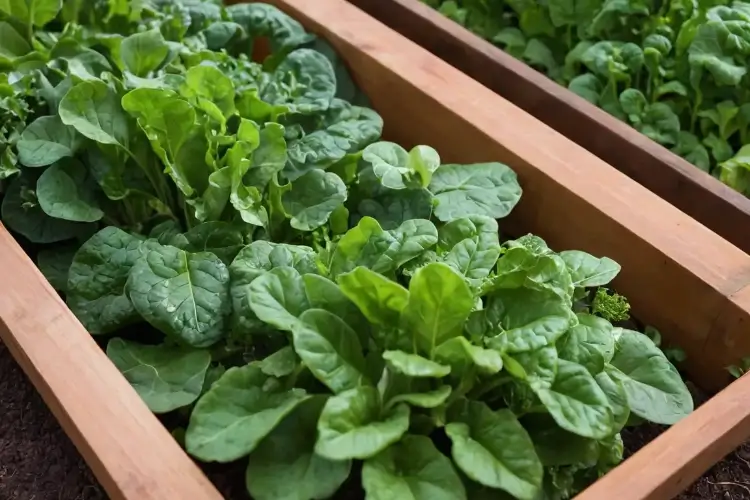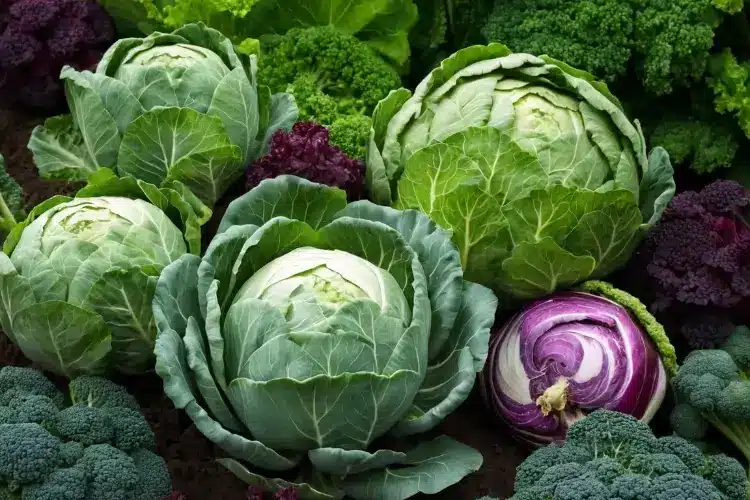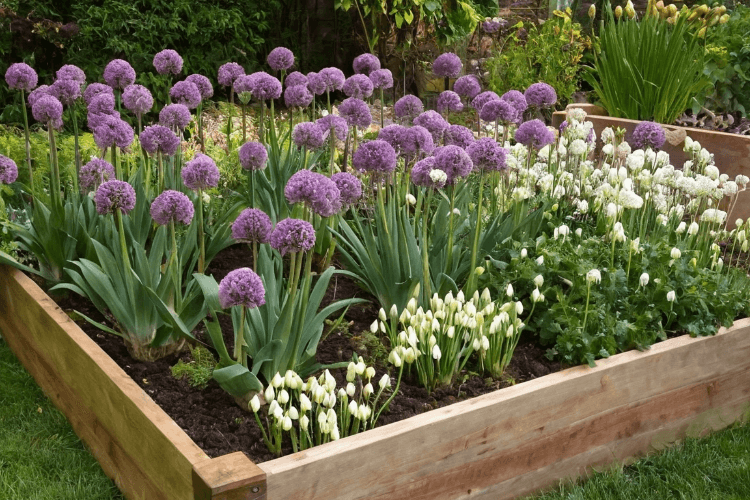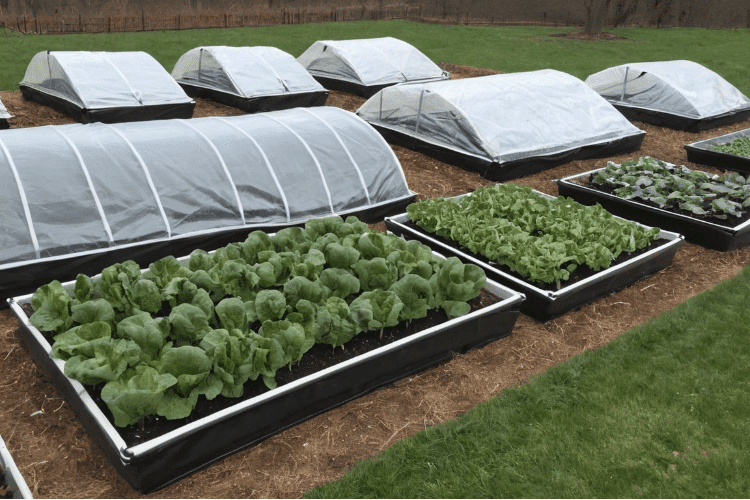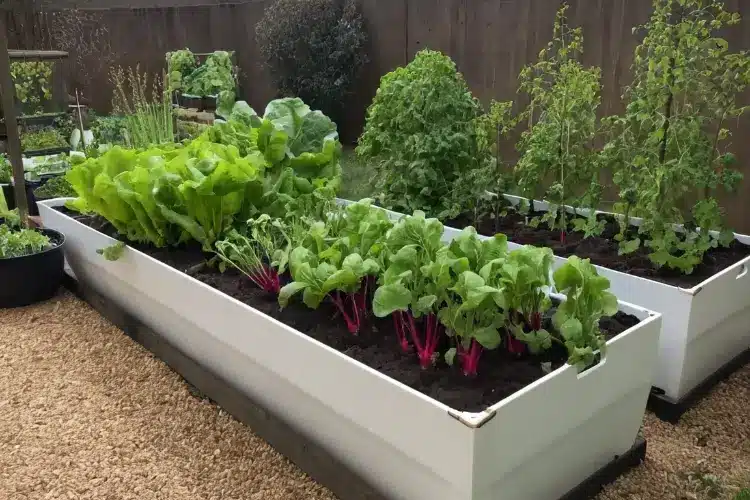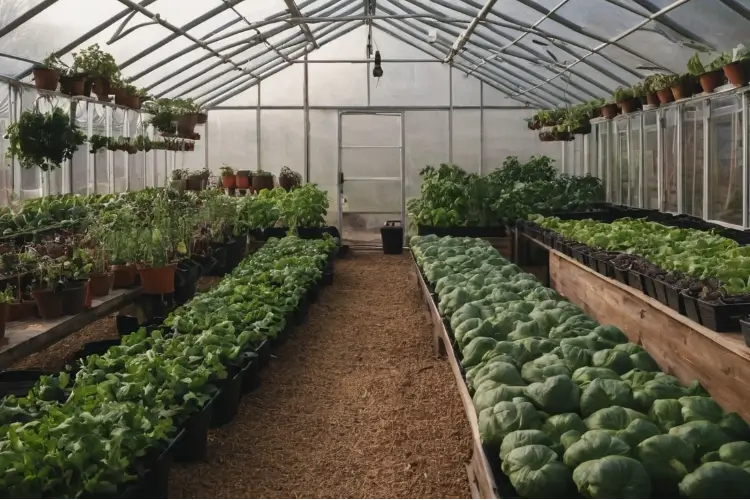Winter doesn’t have to mean the end of your gardening season. With the right selection of cold-hardy vegetables, you can enjoy fresh produce throughout the colder months. Whether you’re an experienced gardener or just starting, this guide will help you choose the best vegetables to grow in winter, provide tips on protecting your crops from frost, and share advice for successful winter harvests.
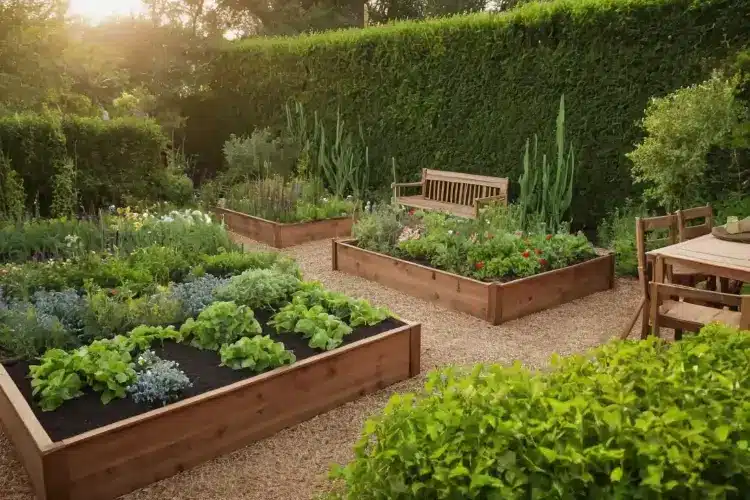
Why Winter Gardening Matters
Gardening during winter allows you to continue enjoying fresh, nutritious vegetables and contributes to a sustainable lifestyle. By choosing frost-resistant vegetables, you can ensure that your garden thrives even when temperatures drop. Learn more about the best crops suited for your region with this Winter Crop Guide from The Old Farmer’s Almanac.
Additionally, understanding your local climate is crucial when planning your winter garden. For those in the United States, the USDA’s Plant Hardiness Zone Map can help identify which vegetables will thrive based on your zone and temperature ranges.
Best Winter Vegetables to Grow
1. Leafy Greens
Leafy greens are among the easiest vegetables to grow in winter due to their cold tolerance and quick growth cycle.
- Kale—One of the hardest greens, kale can withstand temperatures as low as 20°F (-6°C).
- Spinach – Thrives in cooler temperatures, producing tender leaves even in light frost.
- Swiss Chard – Although not as cold-hardy as kale, Swiss chard can survive with light frost protection.
2. Root Vegetables
Root vegetables store well in colder soil and offer a great harvest in winter.
- Carrots – Cold weather brings out their sweetness, and they can stay in the ground until the soil freezes.
- Beets – Another versatile root vegetable, beets are hardy and add rich color to winter dishes.
- Radishes – Known for their quick growing season, radishes are perfect for winter harvesting.
3. Cruciferous Vegetables
Cruciferous vegetables are resilient and thrive in the cold, often becoming sweeter after a frost.
- Broccoli – A cold-hardy crop that can yield multiple heads with careful harvesting.
- Brussels Sprouts – These small cabbages improve in taste after exposure to frost.
- Cabbage – With a low-growing habit, cabbage can withstand freezing temperatures when covered.
4. Alliums
Alliums like garlic and onions are essential winter crops known for their hardiness and low-maintenance growth.
- Garlic – Often planted in late fall, garlic overwinters in the ground and produces large bulbs by summer.
- Onions – Depending on the variety, onions can grow through winter in mild climates.
- Leeks – A cold-tolerant crop, leeks are delicious in soups and stews.
Growing Winter Vegetables in Containers
Container gardening can make winter gardening easier and more accessible. Growing in containers allows you to move your plants as needed, especially in harsh weather. Recommended crops for pots include:
- Lettuces
- Spinach
- Radishes
Tips for Winter Container Gardening
- Choose large pots to insulate roots from freezing.
- Use a high-quality potting mix with good drainage.
- Position containers in areas with maximum sunlight.
Protecting Your Winter Crops
Winter weather can be unpredictable, so frost protection is essential for ensuring the success of your winter garden. Consider using:
- Row covers – Lightweight covers that insulate crops from frost while allowing sunlight.
- Cloches – Small, portable greenhouses that trap heat around individual plants.
- Cold frames – Miniature greenhouse structures that protect plants from frost and snow.
For guidance on selecting the best row covers for winter gardening, visit Gardener’s Supply Company.
Planning Your Winter Garden
Planning is key to a successful winter garden. Here’s how to get started:
- Select crops based on your climate – Some vegetables require milder winters, while others can tolerate hard freezes.
- Determine planting times – Aim to plant before the first frost date to allow vegetables to establish roots.
- Optimize spacing and rotation – Prevent soil depletion and pests by rotating crops and spacing them appropriately.
Greenhouse Growing for Winter Vegetables
If you live in an area with extremely cold winters, greenhouse gardening is an excellent option. With a greenhouse, you can control temperature and humidity, enabling a wider variety of crops.
Best crops for winter greenhouses:
- Tomatoes
- Peppers
- Herbs
Soil and Fertilization Tips for Winter Vegetables
Winter vegetables still need nutrient-rich soil. Prepare your soil by:
- Adding compost before planting
- Applying organic fertilizers tailored for cold-weather crops
- Maintaining moisture levels, as winter soil can dry out quickly
Harvesting Winter Vegetables
Knowing when to harvest is crucial for winter vegetables. Many cold-hardy crops become sweeter after frost.
- Leafy greens – Harvest the outer leaves to encourage continuous growth.
- Root vegetables – Dig up when the soil is soft to avoid damaging the roots.
- Alliums – Harvest leeks, onions, and garlic when tops are brown or wilting.
Common Challenges in Winter Gardening
Gardening in winter isn’t without its challenges. Be prepared to manage:
- Reduced sunlight – Choose south-facing areas or supplement with grow lights.
- Moisture – Avoid overwatering, but ensure soil doesn’t completely dry out.
- Pests – While winter pests are fewer, check for slugs and aphids in protected areas.
FAQs about Winter Vegetable Gardening
What vegetables can be grown outside in winter?
Many cold-hardy vegetables like kale, carrots, and garlic thrive outdoors with proper protection.
Do winter vegetables need as much sunlight as summer crops?
Winter vegetables require sunlight but tolerate lower levels, making them suitable for shorter days.
How can I protect my winter vegetables from frost damage?
Use row covers, cloches, or cold frames to insulate plants and prevent frost damage.
What are the easiest vegetables to grow in winter?
Leafy greens, radishes, and carrots are some of the easiest crops for beginners in winter.
How late in the season can I plant winter vegetables?
Planting before the first frost is ideal, though some crops like garlic and onions can be planted even later.

